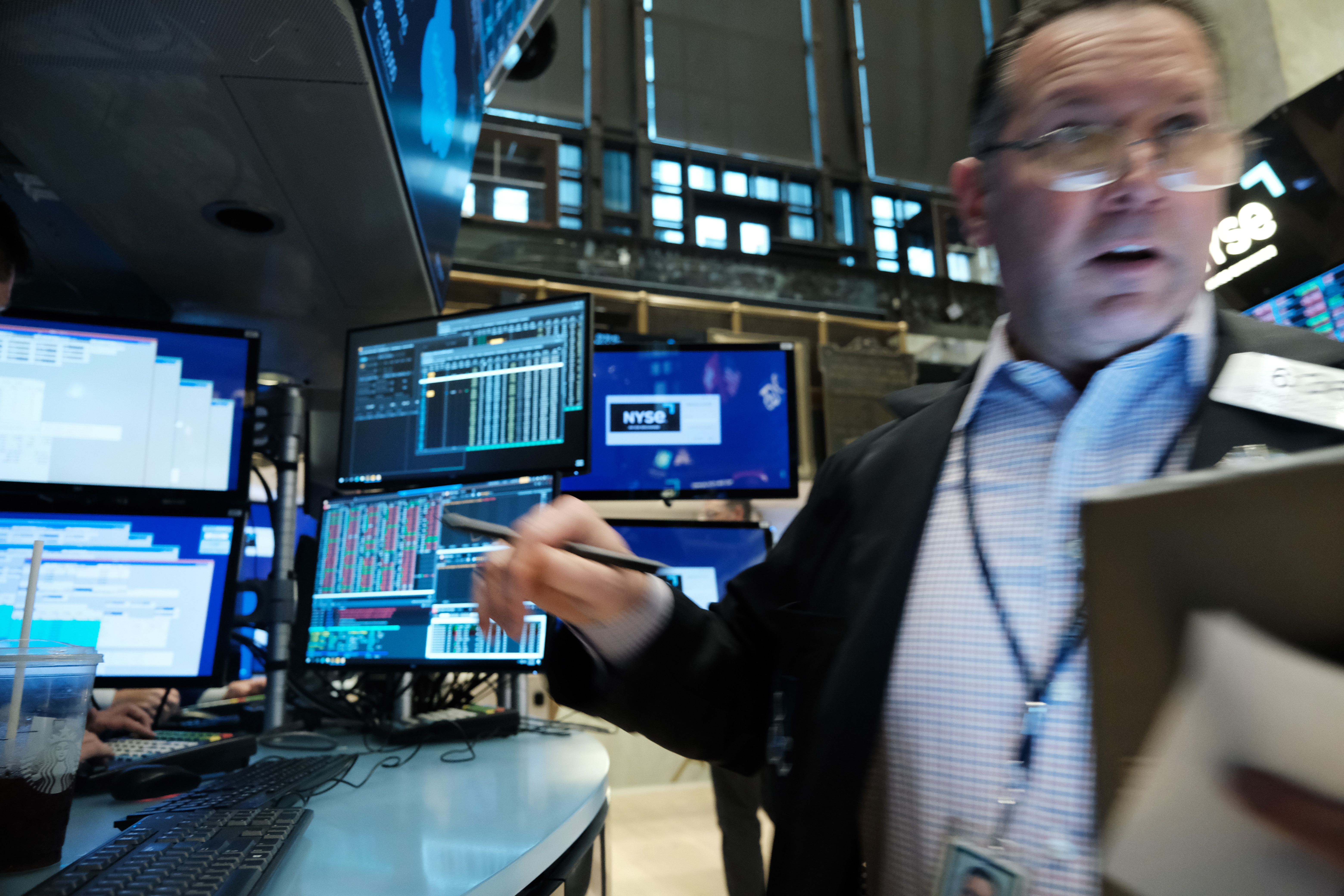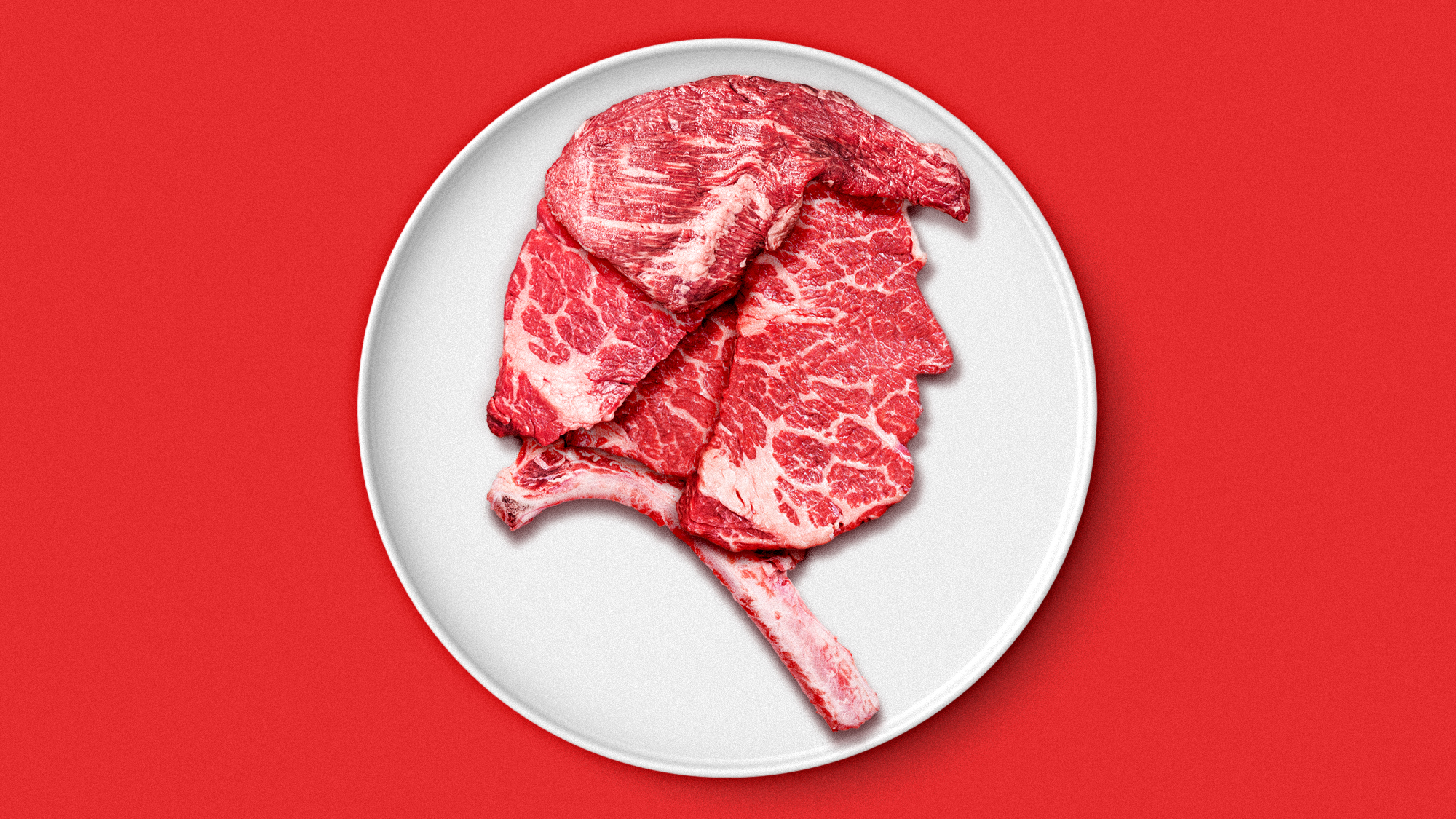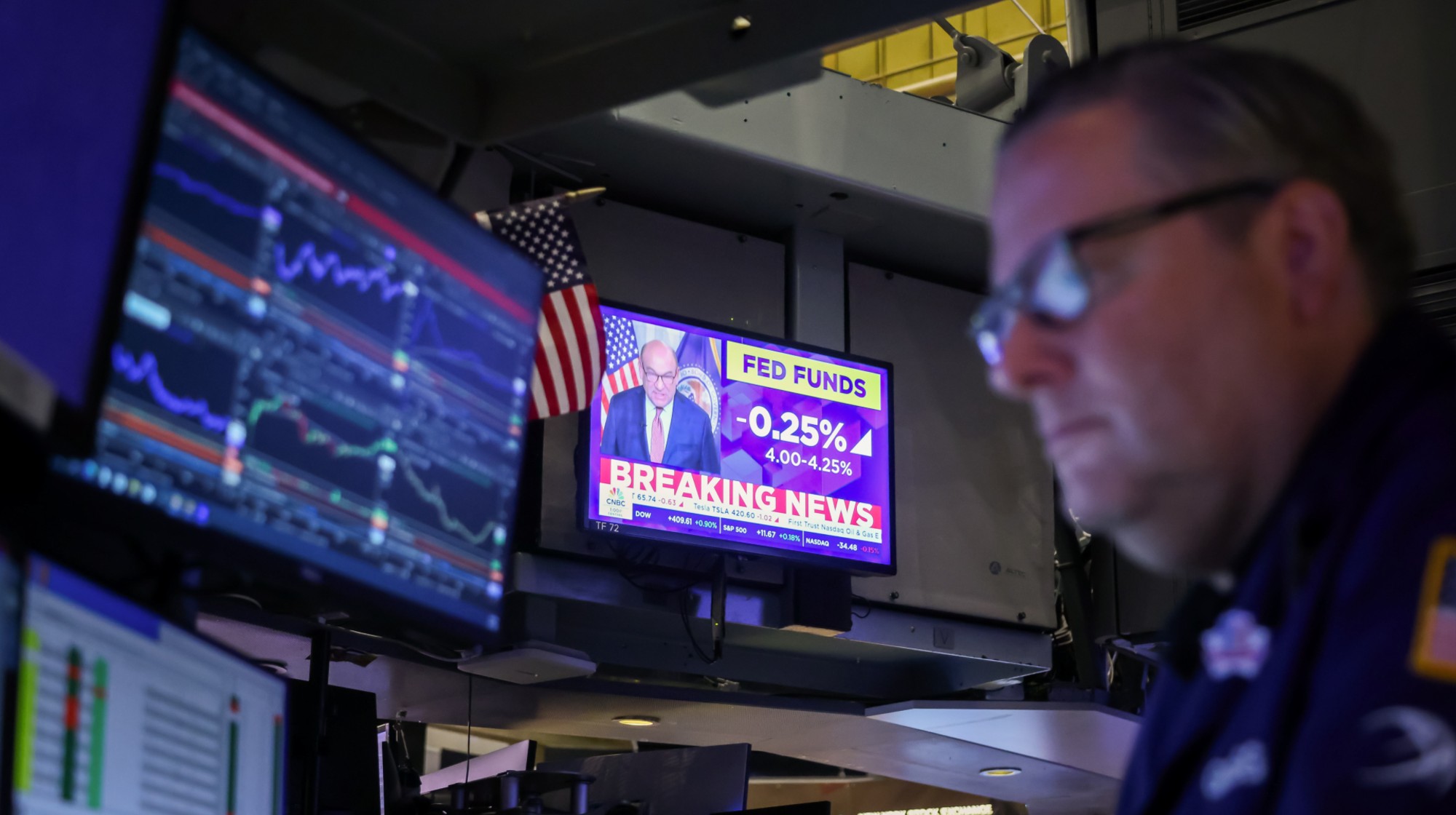Economy: Surprise slump brings stagflation fears
Is the U.S economy at risk?

A free daily email with the biggest news stories of the day – and the best features from TheWeek.com
You are now subscribed
Your newsletter sign-up was successful
The smartest insight and analysis, from all perspectives, rounded up from around the web:
So much for the "roaring twenties," said Valentina Romei and Alan Smith in the Financial Times. After nearly two years of rapid growth following the initial shocks of pandemic lockdowns in 2020, the Commerce Department reported last week that the U.S. economy abruptly shrank in the first three months of 2022, contracting at an annualized rate of 1.4 percent. Economists expected we wouldn't match last year, when the economy grew by 5.7 percent. But "the double shock of COVID-19 and the Russian invasion of Ukraine" has pushed inflation well above expectations, putting the U.S. and other economies at risk of "a painful mix of high prices and low growth known as 'stagflation.'" With employers forced to raise wages by a tight labor market, inflation looks more likely to get "entrenched." Most economic observers anticipated a strong 2022; instead, we are left asking, "How bad could it get?"
The headline number on the economy isn't the whole story, said Neil Irwin in Axios. Trade deficits weigh heavily on GDP calculations because imports are subtracted from the overall figure. In the quarter, exports fell sharply because of weaker economic growth abroad, while imports soared, reflecting "an economy with significantly stronger domestic demand than the rest of the world." Despite inflation, consumer spending remained solid — a positive sign of "underlying growth in the U.S. economy."
The Week
Escape your echo chamber. Get the facts behind the news, plus analysis from multiple perspectives.

Sign up for The Week's Free Newsletters
From our morning news briefing to a weekly Good News Newsletter, get the best of The Week delivered directly to your inbox.
From our morning news briefing to a weekly Good News Newsletter, get the best of The Week delivered directly to your inbox.
Investors aren't seeing hopeful signs, said Mohamed El-Erian in the Financial Times. The S&P 500 fell 8.8 percent last month and is off to its worst start to any year since World War II. Nasdaq did yet worse, falling 13.3 percent, and even traditional safe havens in government bonds have broken down. Following two years of the Fed "turbocharging" the markets, investors have finally accepted that "the central bank has no choice but to take its foot off the stimulus accelerator." Amazon suffered its worst stock drop since 2006 after the e-commerce giant said it lost money in the first quarter and expects more losses coming, said Matt Day in Bloomberg. As a bellwether for consumer spending, Amazon's results are watched "closely for whether shoppers will trim their purchases to offset rising prices." Demand "remains strong," the company said, but not strong enough to support the "hiring and warehouse-building binge" it went on during the pandemic.
This isn't a 1970s redux, said Alan Blinder in The Wall Street Journal. When supply shocks caused inflation to soar and growth to slow in 1973, "no one knew how to think about it," and the Fed's faltering responses reflected that ignorance. The lesson was learned, and economists now "understand that inflation and unemployment naturally rise or fall together when supply shocks rule the roost." The Fed "underestimated how long it would take supply to catch up to surging demand," and rates must now rise substantially. But the economy remains "basically healthy," with unemployment low and Americans sitting on excess savings that should cushion the blow from a downturn. Any recession we get "shouldn't be deep and long."
This article was first published in the latest issue of The Week magazine. If you want to read more like it, you can try six risk-free issues of the magazine here.
A free daily email with the biggest news stories of the day – and the best features from TheWeek.com
-
 Political cartoons for February 16
Political cartoons for February 16Cartoons Monday’s political cartoons include President's Day, a valentine from the Epstein files, and more
-
 Regent Hong Kong: a tranquil haven with a prime waterfront spot
Regent Hong Kong: a tranquil haven with a prime waterfront spotThe Week Recommends The trendy hotel recently underwent an extensive two-year revamp
-
 The problem with diagnosing profound autism
The problem with diagnosing profound autismThe Explainer Experts are reconsidering the idea of autism as a spectrum, which could impact diagnoses and policy making for the condition
-
 Will Trump’s 10% credit card rate limit actually help consumers?
Will Trump’s 10% credit card rate limit actually help consumers?Today's Big Question Banks say they would pull back on credit
-
 What will the US economy look like in 2026?
What will the US economy look like in 2026?Today’s Big Question Wall Street is bullish, but uncertain
-
 Is $140,000 the real poverty line?
Is $140,000 the real poverty line?Feature Financial hardship is wearing Americans down, and the break-even point for many families keeps rising
-
 Fast food is no longer affordable for low-income Americans
Fast food is no longer affordable for low-income AmericansThe explainer Cheap meals are getting farther out of reach
-
 Why has America’s economy gone K-shaped?
Why has America’s economy gone K-shaped?Today's Big Question The rich are doing well. Everybody else is scrimping.
-
 From candy to costumes, inflation is spooking consumers on Halloween this year
From candy to costumes, inflation is spooking consumers on Halloween this yearIn the Spotlight Both candy and costumes have jumped significantly in price
-
 Why are beef prices rising? And how is politics involved?
Why are beef prices rising? And how is politics involved?Today's Big Question Drought, tariffs and consumer demand all play a role
-
 Fed cuts interest rates a quarter point
Fed cuts interest rates a quarter pointSpeed Read ‘The cut suggests a broader shift toward concern about cracks forming in the job market’